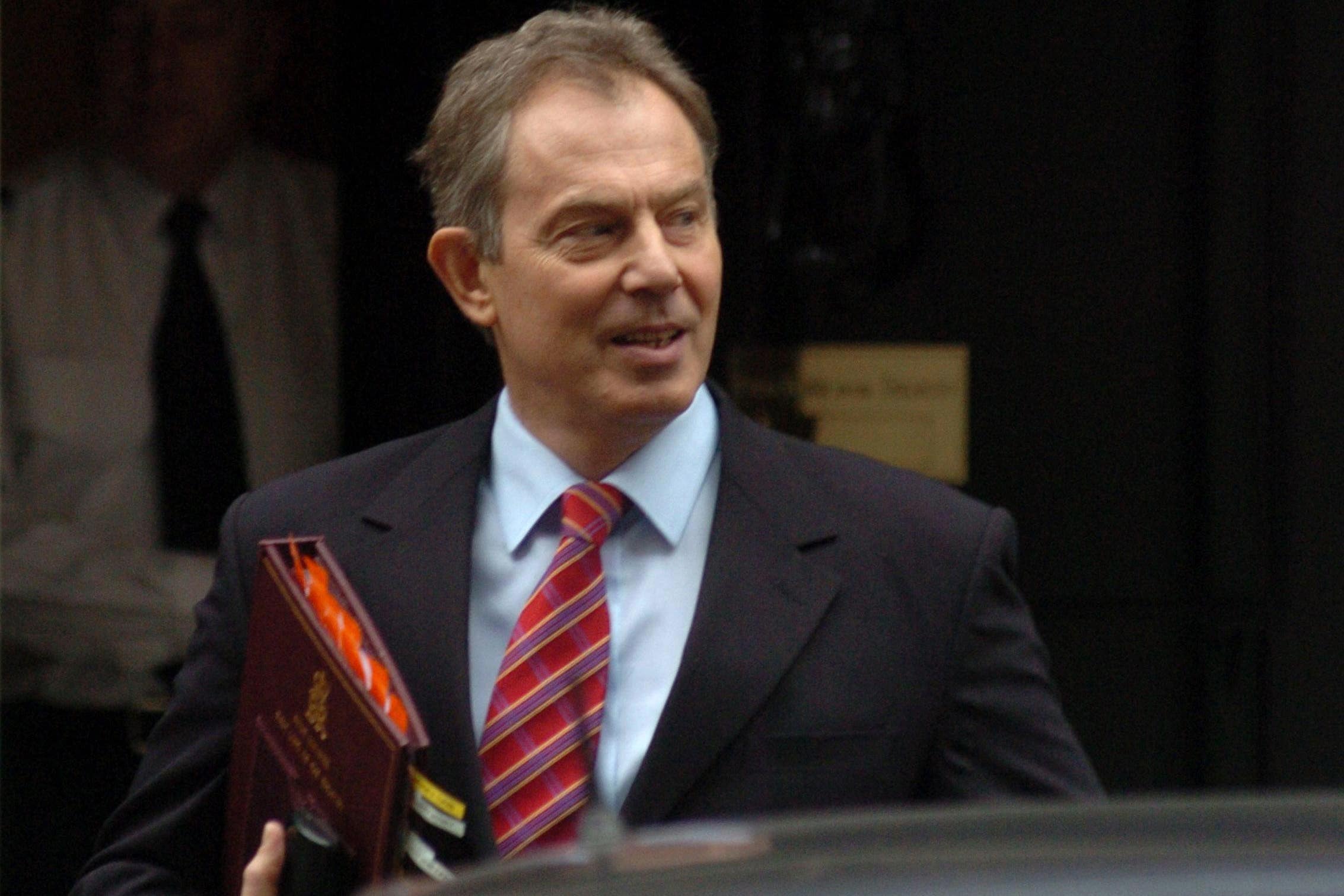Blair was urged to keep alive Ukraine’s EU hopes, records show
Former prime minister Tony Blair was told 20 years ago that Kyiv believed the West had ‘too rosy a view’ of Vladimir Putin.

Prime minister Tony Blair was urged not to snuff out Ukraine’s aspirations to join the EU amid hopes that it could form a “formidable barrier” to Russian expansionism, according to newly released official papers.
Files from the early 2000s released to the National Archives in Kew show UK officials found the Ukrainians were desperate to realise their “European vocation” but were depressed at the way they were “rubbished” in the West.
In what now seems like a highly prescient warning, the Ukrainians expressed concern that the US and the Europeans had “too rosy a view” of Russian president Vladimir Putin.
In September, Ukrainian president Leonid Kuchma wrote directly to Mr Blair appealing for his support in achieving their long-term goal of “full-scale European and Euro-Atlantic integration, including the full-fledged EU membership”.
The Ukrainians want to build a special relationship with us, if only we would show more interest
In a handwritten postscript, he added: “Knowing you as a sincere friend of Ukraine, I pin great hopes on your personal support in this exceptionally important issue!”
Roger Liddle, Mr Blair’s main adviser on the issue, acknowledged that immediate membership of the EU or Nato was not on the cards, but urged the prime minister to engage.
“The Ukrainians want to build a special relationship with us, if only we would show more interest,” he wrote following talks in Crimea in July 2001.
“Strengthening Ukraine’s shaky democracy and economy increases stability on the EU’s future eastern borders and acts as a formidable barrier to any resurgence of Russian imperialism to the west.”
The Ukrainians are depressed however that most of Europe and the new US administration is running them down
At a follow-up meeting at Chevening in December, Mr Liddle found the delegation from Kyiv in downbeat mood at their treatment by the West.
“The main Ukrainian pitch is to be given ‘associate membership’ of the EU,” he said.
“The Ukrainians are depressed however that most of Europe and the new US administration is running them down.
“We have too rosy a view of Putin (who according to them is a clever, presentable power politician, but no democratic hero). And we rubbish Ukraine.”
Meanwhile, Britain’s ambassador to Kyiv, Roland Smith, expressed concern about a proposal by foreign secretary Jack Straw for the EU to offer Ukraine – along with Belarus and Moldova – “special neighbour status”.
He said the way the proposition was formulated appeared designed to deny them the right to aspire to full EU membership and he questioned why the prospect was being kept open for countries such as Bulgaria and Romania – which had not yet joined – but not Kyiv.
“Because the Ukrainians are not really Europeans? Because countries which were part of the Soviet Union for longer than the Baltic States were incurably infected with the Soviet mentality? Because Ukraine is simply too big? Because really we think that Ukraine ought to go back to Russia where she belongs?” he asked.
“It could sound as though the ultimate eastern boundary of the EU is finally being fixed and special neighbour status is for those on the wrong side.”
Bookmark popover
Removed from bookmarks